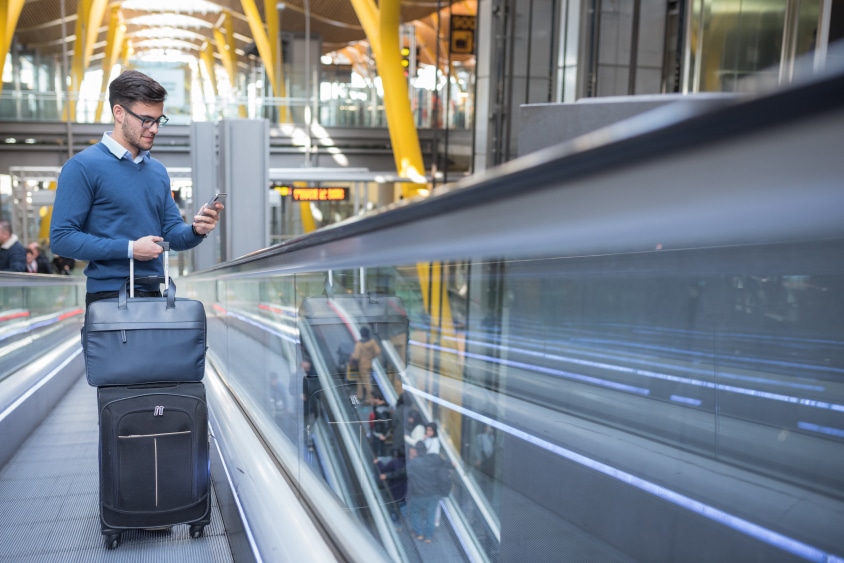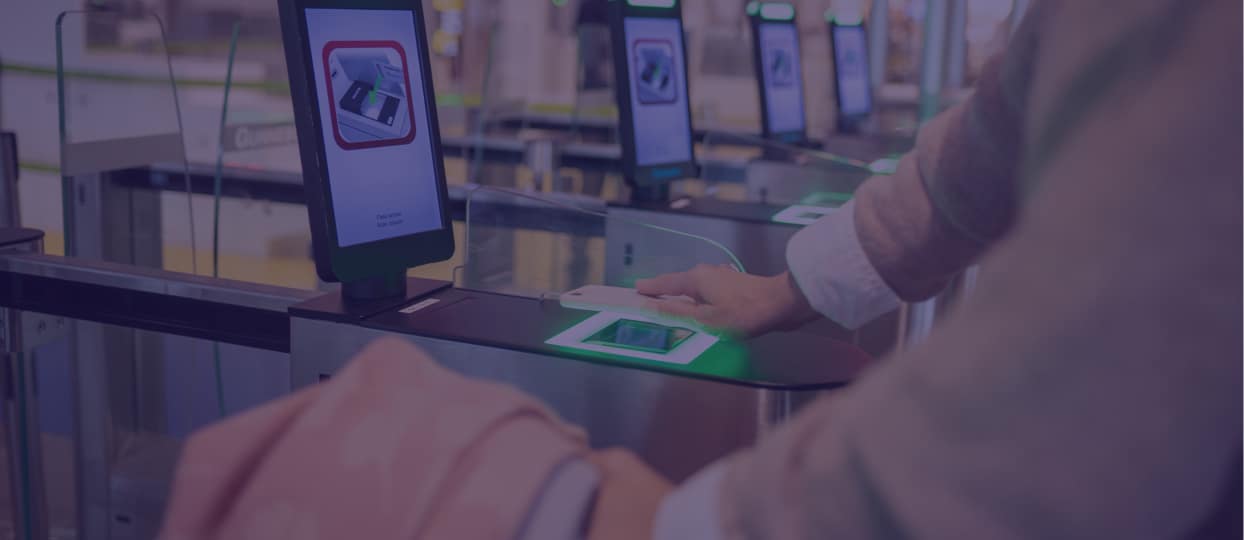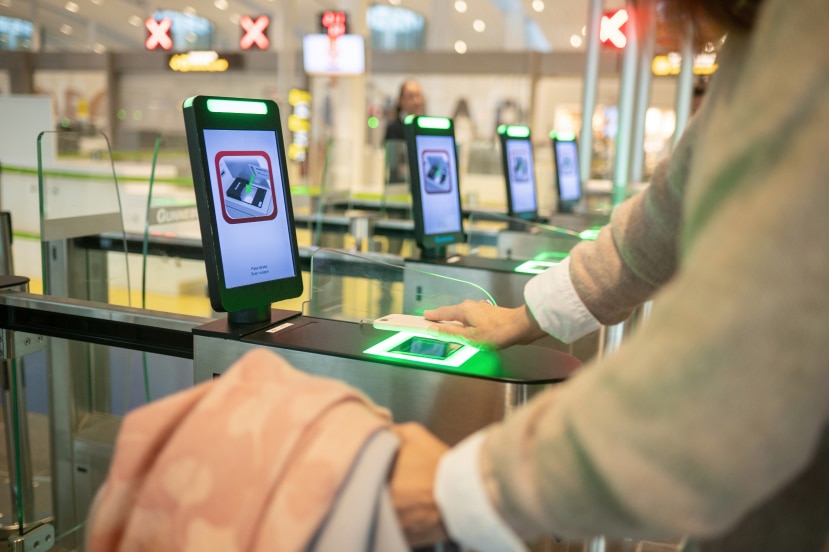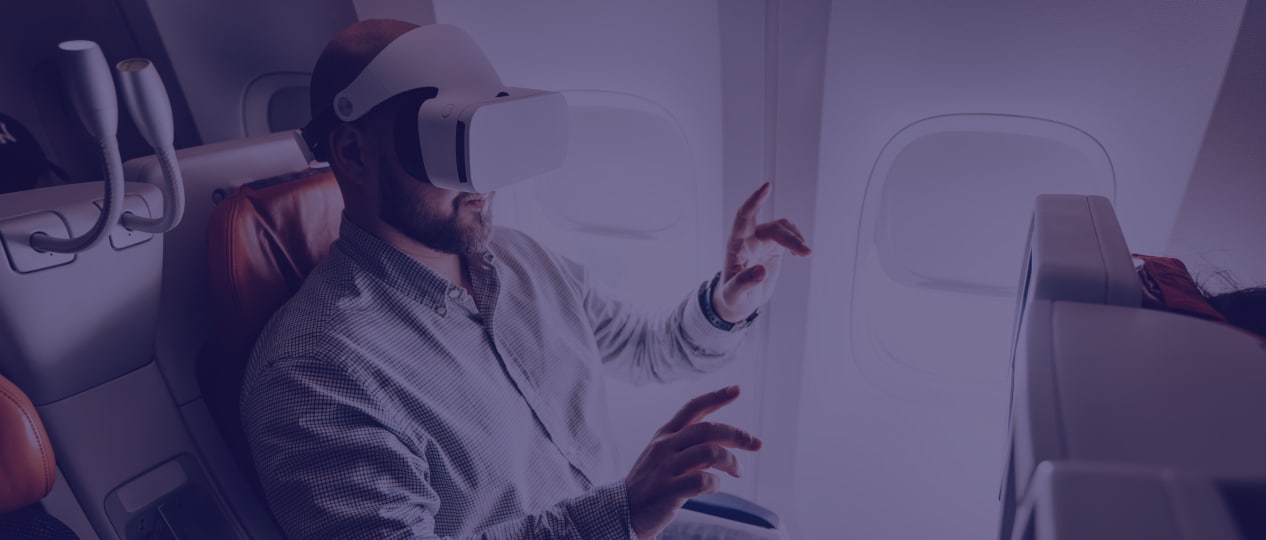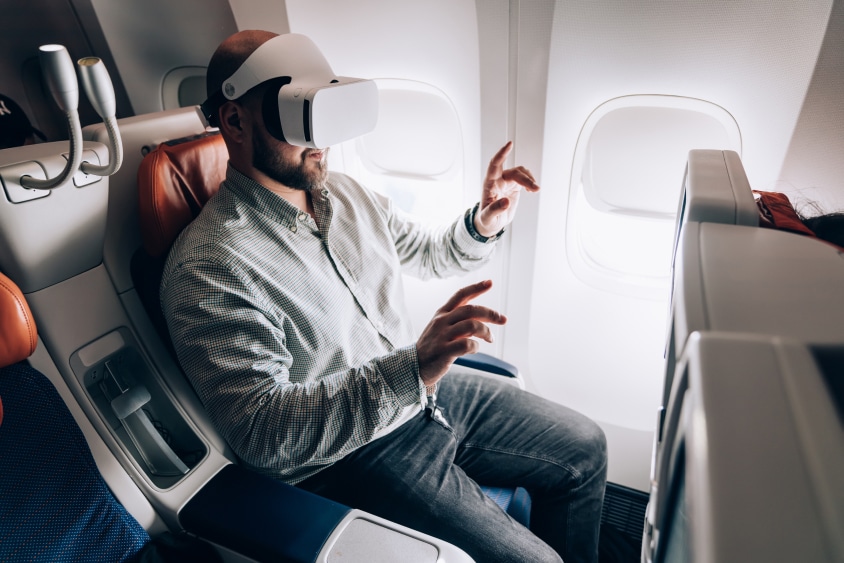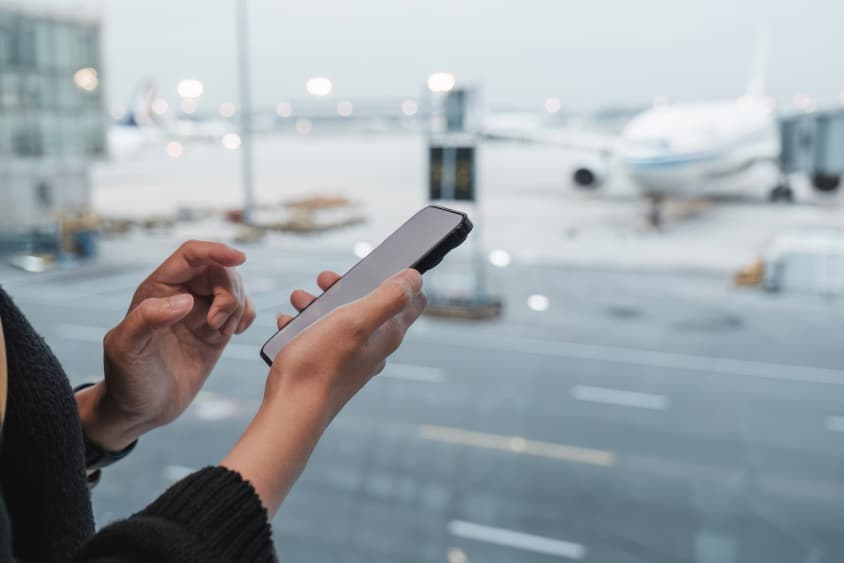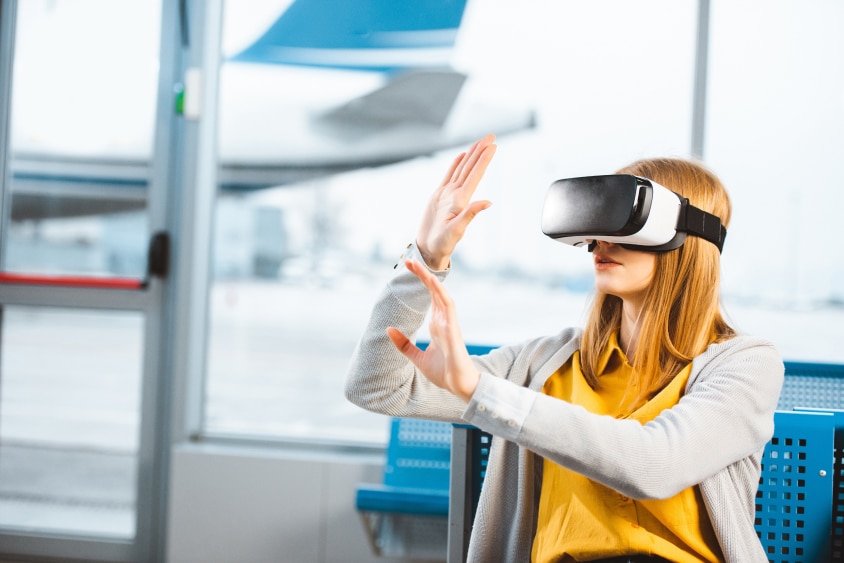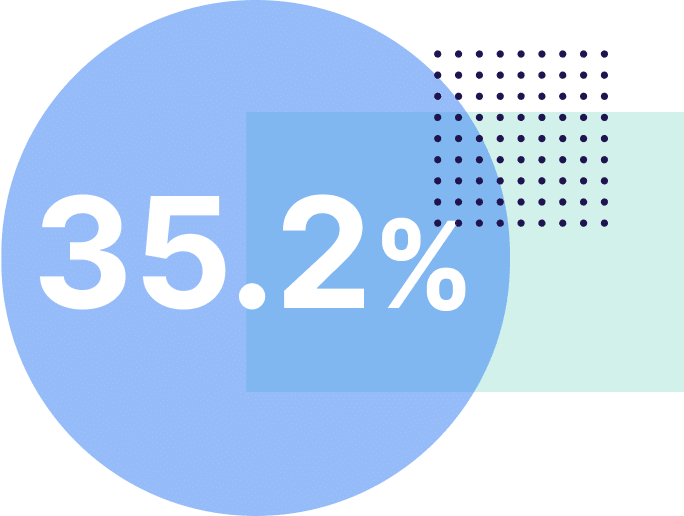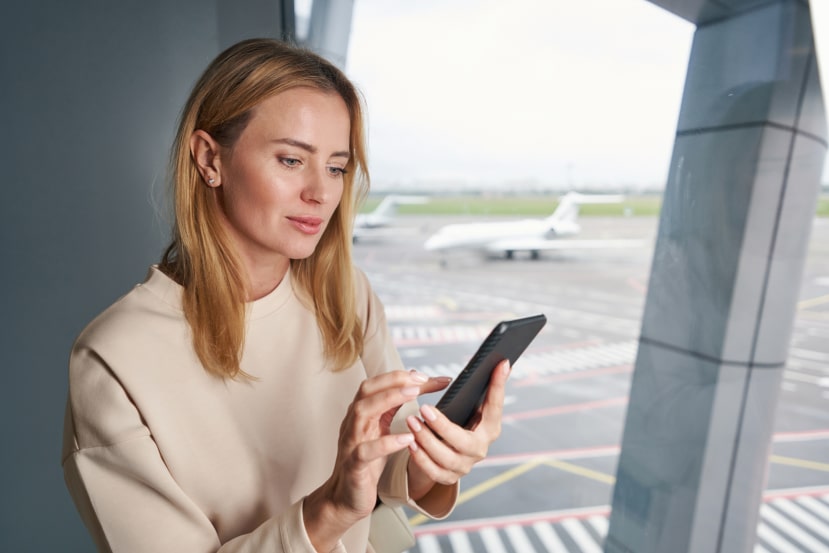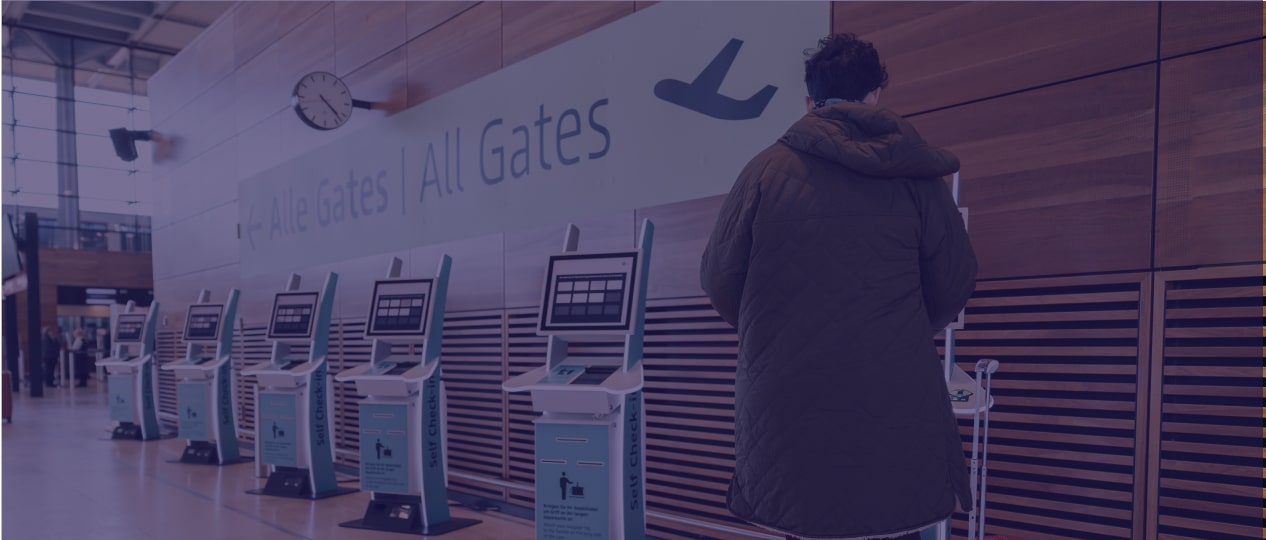Navigating theDigital Future
INNOVATIONS AND UXTRENDS FOR AIRLINES
The airline industry has been undergoing a transformative digital evolution over the last decade. Driven by the growing adoption of mobile technology and advancements in artificial intelligence, augmented reality, and other digital solutions, the travel experience has shifted significantly.
Digitalization Enhancing Airport Facilities
Digitalization has enhanced airport facilities by boosting passenger satisfaction, increasing security efficiency, and reducing wait times.

Key Passenger Experience Trends in the Airline Industry
1. AI as a Personalized Travel Assistant
AI enhances travel by analyzing user data to offer tailored recommendations, dynamic pricing, and optimized itineraries. Chatbots streamline interactions, while predictive analytics improve scheduling and maintenance. By understanding user behavior, AI evolves into a more intuitive and personalized travel companion.
2. Accessibility in Focus
Accessibility is a growing focus in the airline industry, driven by customer demand and regulatory mandates. By June 28, 2025, all new services must meet accessibility standards, with existing ones required to comply by June 28, 2030. Airlines adopting inclusive practices, such as accessible booking and in-flight services, align with WCAG guidelines and improve experiences for all travelers.
3. Biometrics & Digital Identity
The adoption of facial recognition and biometric systems is reshaping passenger processing, offering a seamless, contactless experience. Delta Air Lines' Digital ID program exemplifies this shift, using facial matching for faster check-ins and boarding, reducing wait times, and enhancing security.
4. Enhanced In-Flight Entertainment
With a market size projected to exceed $12 billion by 2030, IFE systems are incorporating AR/VR technologies for an immersive passenger experience. High-speed in-flight connectivity and interactive content platforms are becoming standard, catering to passenger preferences for personalized entertainment.
5. Digital Retail & Payment Innovations
Airlines are evolving into digital retailers, leveraging mobile payments and loyalty program integrations. Buy-now-pay-later options and dynamic pricing are becoming common, enhancing ancillary revenue streams and providing a frictionless shopping experience.
6. Immersive Technology: AR & VR
Airlines and airports are experimenting with AR/VR for training, passenger engagement, and virtual simulations. Lufthansa’s collaboration with Meta Reality Labs highlights the integration of VR into the customer experience, offering virtual tours of aircraft cabins and services.
7. Sustainability Initiatives
Airlines are embracing greener innovations, from alternative fuels to digital solutions, to create a more sustainable travel experience. Passengers can now access eco-friendly flight options, carbon offset programs, and real-time emissions tracking through apps, making it easier to travel responsibly while staying informed and engaged.
8. Robotics & Automation
Airports and airlines are accelerating the use of robotics for operations like baggage handling and autonomous check-ins. Advanced robots assist with VIP services, provide guidance, and enhance efficiency. Examples include Emirates’ portable robotic check-in system and the autonomous baggage transport initiatives seen at Schiphol Group.
Digitalization Shaping the Passenger Experience in Airlines
Automated Check-in and Baggage Systems
These systems allow passengers to handle check-ins and baggage drop-offs independently, reducing wait times.
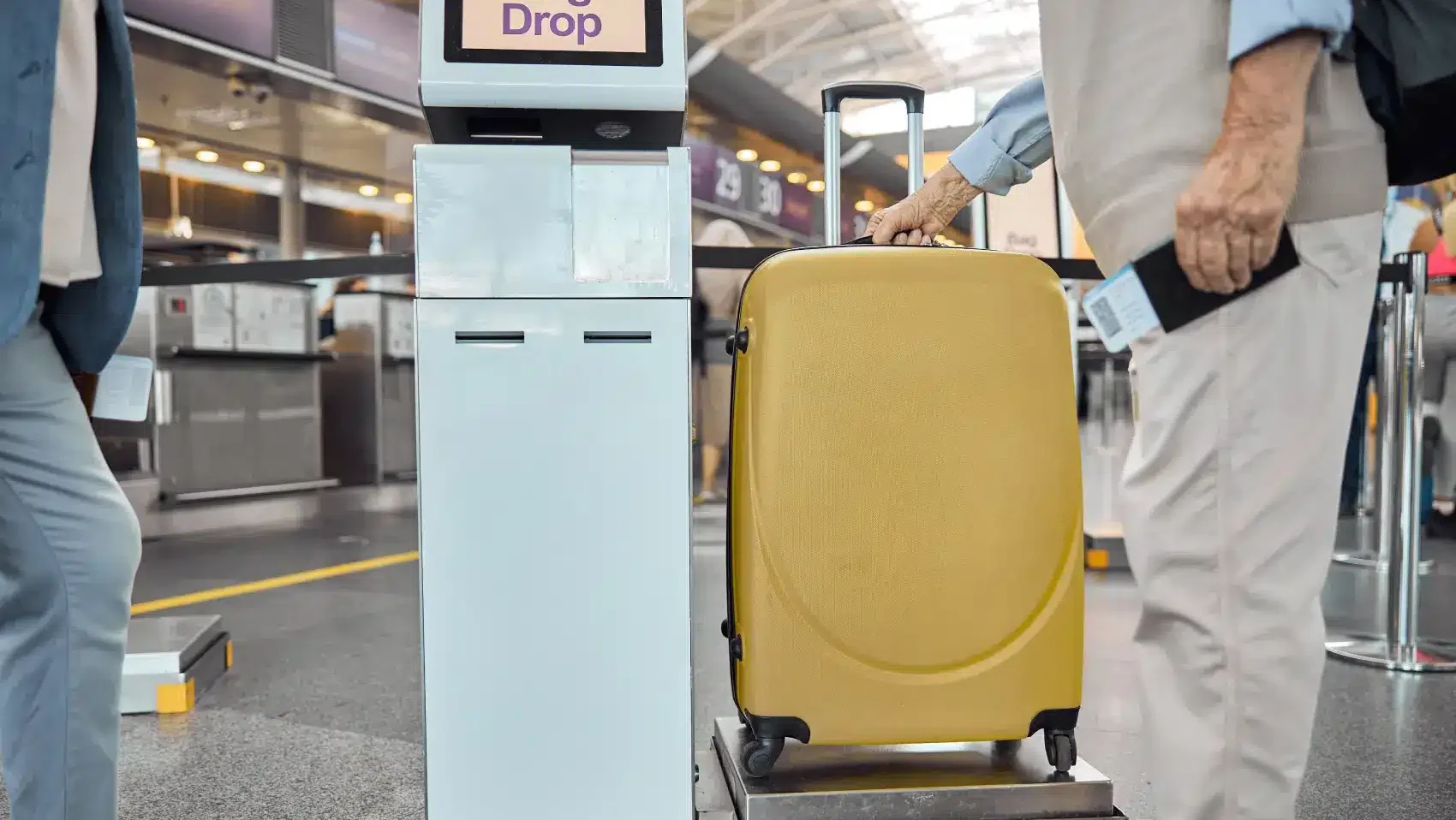
Biometric Security Checks
Facial recognition and biometric screening are improving security and simplifying the airport experience.
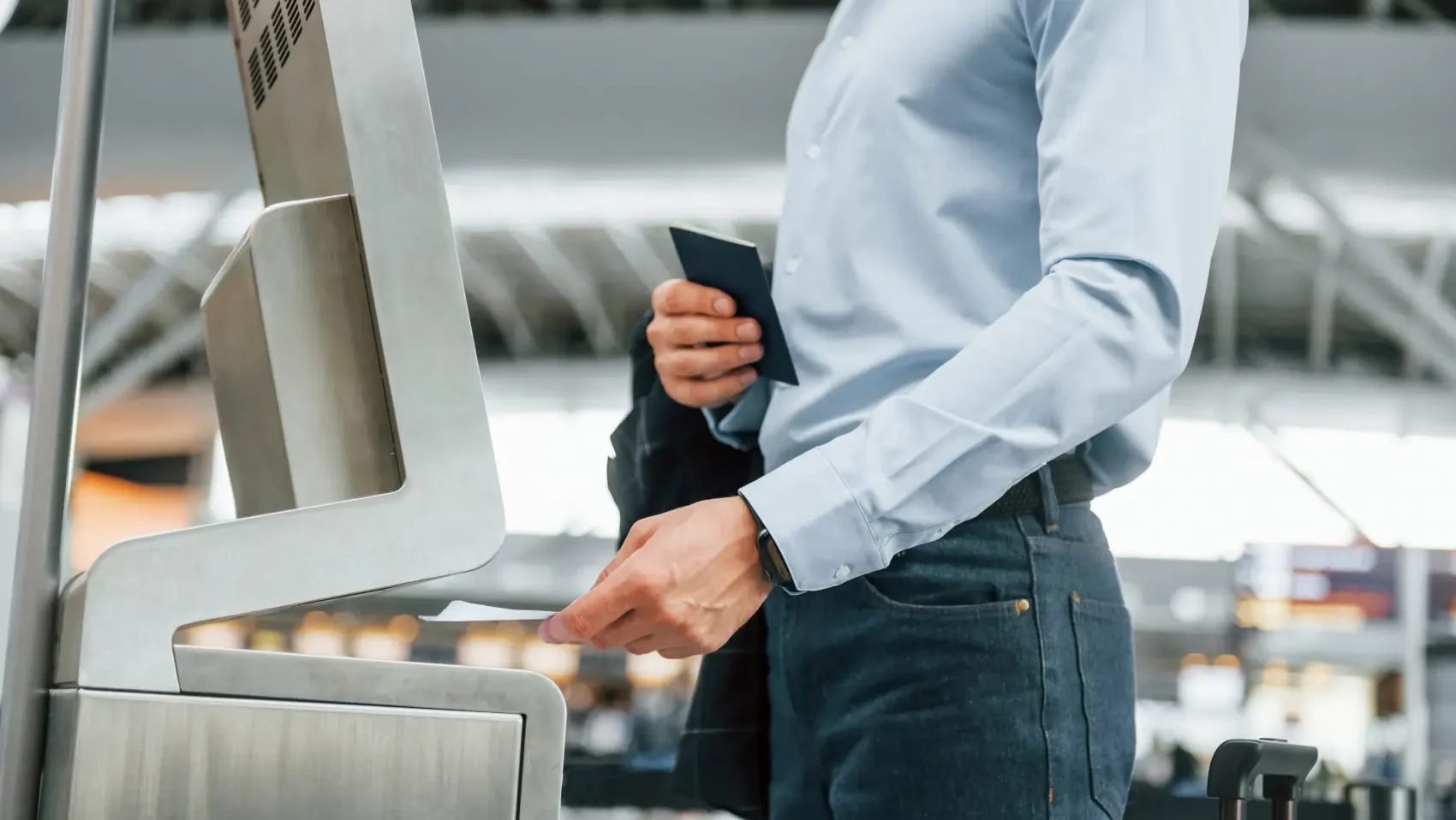
In-flight Connectivity and Entertainment
Enhanced WiFi and VR-based entertainment options make flights more enjoyable and interactive.

Smarter Travel with AI
AI enhances the travel experience by creating customized journeys, minimizing delays, reducing costs, and optimizing travel efficiency.
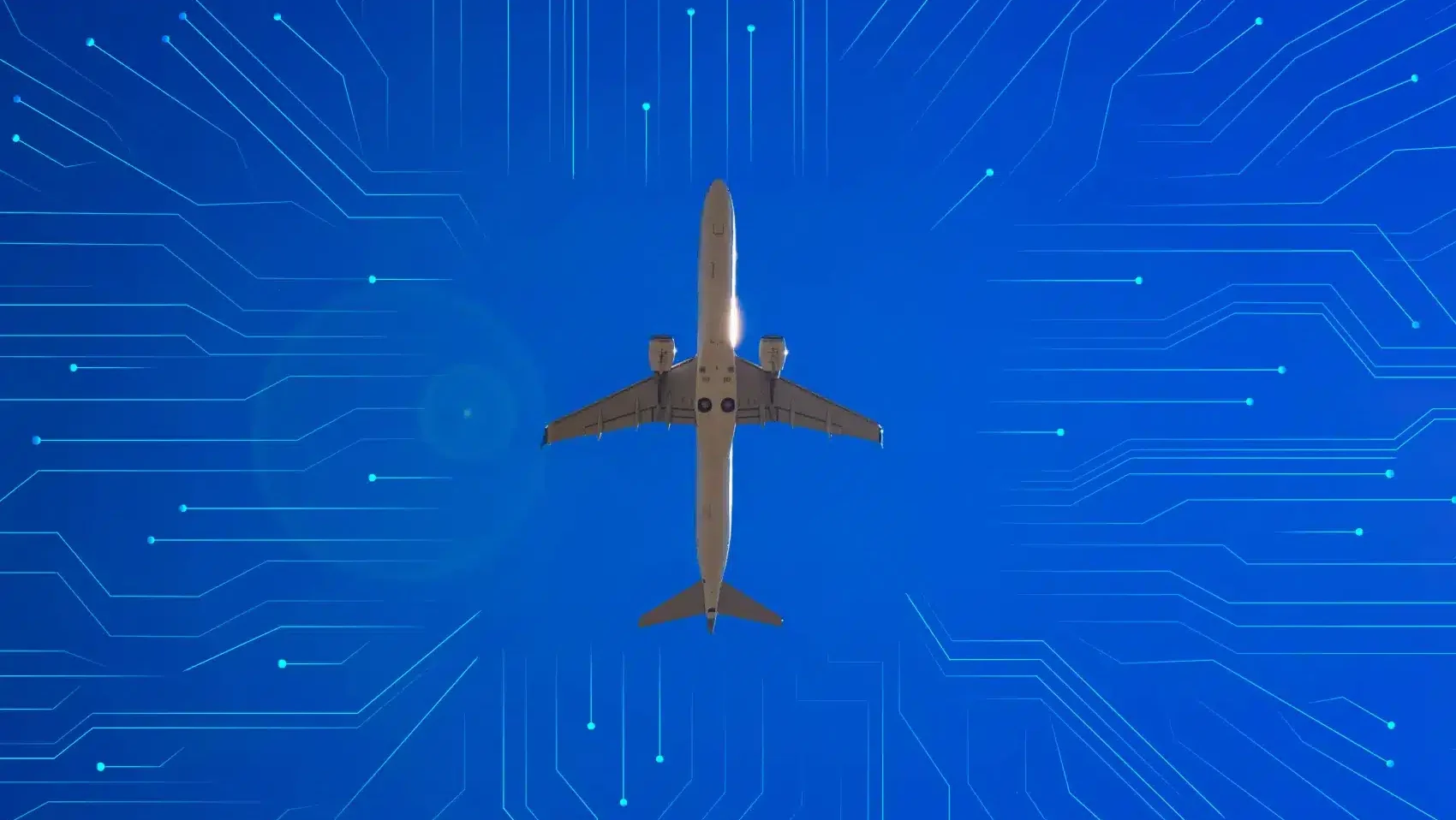
Sustainable Technologies
Travelers are making more sustainable choices, and airlines can support them with eco-friendly options. Digital or recyclable loyalty cards, along with green campaigns and gamification, can encourage responsible travel habits.
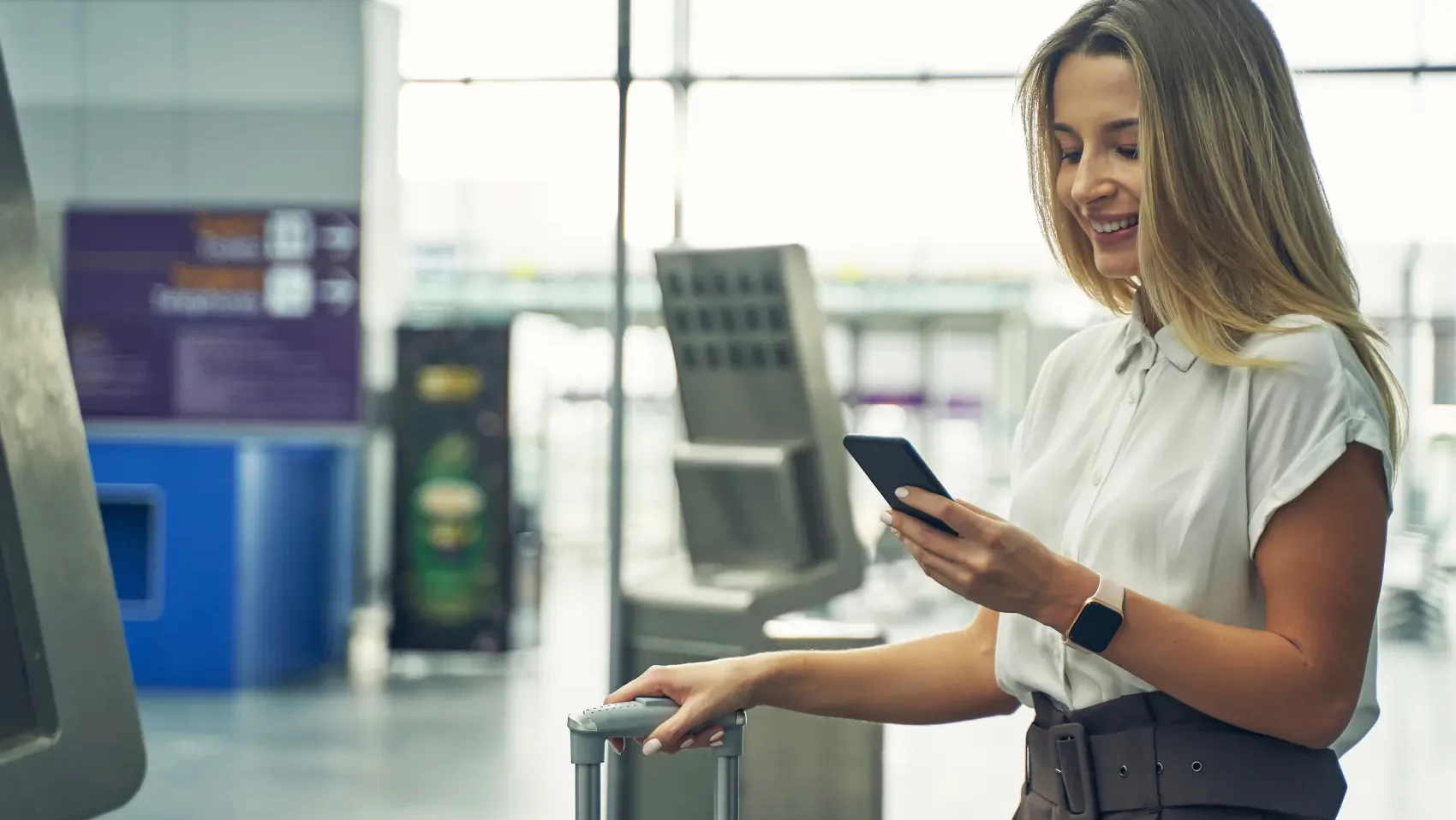
What's next
Digital transformation continues to reshape the travel experience, setting new standards for user experince in the airline industry. From AI-driven personalization to AR/VR enhancements and seamless digital processes, airlines are evolving to meet the expectations of modern travelers. In 2025 and beyond, the focus will be on leveraging these innovations to create safer, smarter, and more engaging journeys. If you’d like to explore how Commencis can help your business excel in these areas, connect with our sales team to discover tailored solutions.





